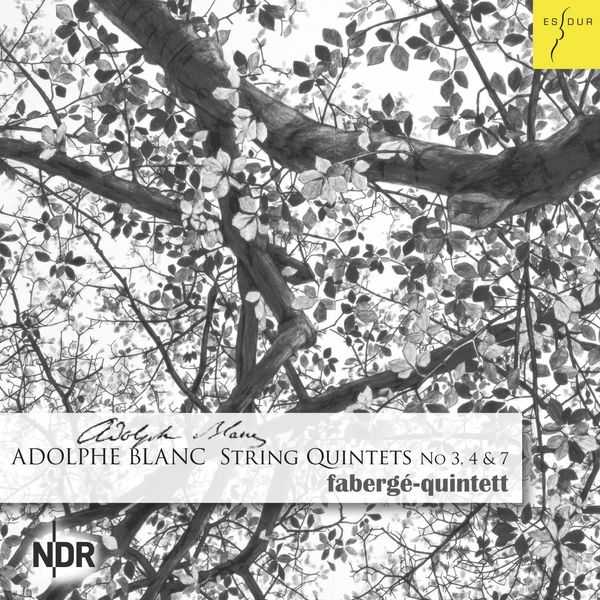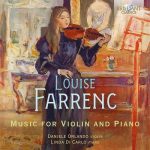

Composer: Adolphe Blanc
Performer: Faberge Quintet, Rodrigo Reichel, Frauke Kuhlmann, Bettina Lenz, Gerhard Sibbing, Sven Forsberg, Peter Schmidt
Format: FLAC (tracks)
Label: Es-Dur
Catalogue: ES2046
Release: 2014
Size: 654 MB
Recovery: +3%
Scan: cover
String Quintet No. 3 in D Major, Op. 21
01. I. Allegro moderato
02. II. Moderato quasi andante
03. III. Allegro
String Quintet No. 4 in E-Flat Major, Op. 22
04. I. Allegro risoluto
05. II. Andante quasi adagio
06. III. Allegro risoluto
07. IV. Finale. Allegro
String Quintet No. 7 in E Major, Op. 50
08. I. Allegro
09. II. Andante
10. III. Scherzo Tarantelle – Allegro vivace
11. IV. Finale. Andante maestoso – Allegro moderato
In quintet music with double-bass two great works stand out: Dvorak’s famous String Quintet op. 77 and the even better-known Trout Quintet by Schubert. Most audiences would be hard put to name further valuable works for this arrangement of strings but Hamburg’s Fabergé Quintet have rediscovered three such and deservingly recorded them for the first time: the String Quintets Nos. 3, 4 and 7 by the 19th-century French composer Adolphe Blanc (1828-1885). Classical or romantic chamber music was little composed between 1820 and 1870 in France, the public being excited primarily by opera and instrumental programme music, but amongst the serious composers of French chamber music during this period – aside from George Onslow and Louise Farrenc – was the violin and viola player Adolphe Blanc. He studied at the Paris Conservatoire with Fromental Halévy (the teacher of Gounod and Bizet) and at times worked as the orchestra conductor of the respected Parisian “Theatre Lyrique”. Blanc’s chamber music is extensive: as well as seven string quintets, he penned string trios and quartets, piano trios, quartets and quintets and a septet for wind, strings and piano.
Formally Blanc generally oriented his compositions to the established if by his time already somewhat outdated patterns of the Viennese classics. How originally and inventively he was able to write within this framework is proven for the first time by the five members of the NDR Symphony Orchestra who comprise the Fabergé Quintet in the three remarkable string quintets they have recorded here.



